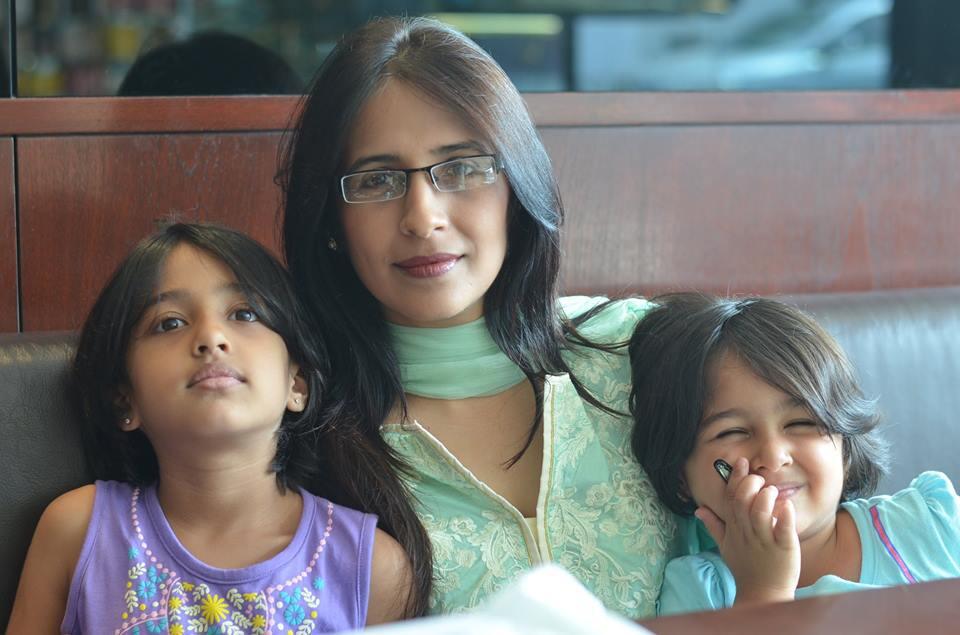
Sept. 10, 2019
Fulbright scholar works to improve the survival rate of patients with blood cancers
Share this story
When she was growing up, Javeria Aijaz thought she would study engineering, but after the death of her grandparents from debilitating illnesses, her father encouraged her to go into medicine.
After earning a medical degree from the University of the Punjab and completing a fellowship in hematology, she went on to teach at King Edward Medical University in Lahore, Pakistan. She later joined a global development agency to work on a safe blood transfusion project, where she led a series of improvements to blood safety standards in her home country.
“I learned that in a resource-strained country like Pakistan, safe blood transfusions would not be possible without eliminating preventable, transfusion-dependent genetic diseases,” Aijaz said. “The experience strengthened my desire to promote research in genetics as a public health measure.”
According to the World Health Organization, 71 million people die each year from the transmission of disease caused by poor blood safety standards.
“There are many diseases that are so common in Pakistan that you don’t see here in the U.S.,” Aijaz said.
Pakistan has the second-highest global burden of Hepatitis C, with 5% of the population infected, compared to only 1% in the United States, according to the WHO. Aijaz knew that earning a Ph.D. in human and molecular genetics would put her a step closer to helping her country research and fight disease. However, with limited opportunities available in Pakistan, she turned to the United States.
I learned that in a resource-strained country like Pakistan, safe blood transfusions would not be possible without eliminating preventable, transfusion-dependent genetic diseases. The experience strengthened my desire to promote research in genetics as a public health measure.
“Despite working at a top-ranked university in Pakistan, there was hardly any research work being done,” Aijaz said.
In 2014, Aijaz, then 31 and with three young children, decided to return to school and applied for a Fulbright scholarship. The Fulbright U.S. Student Program provides research, study and teaching opportunities in more than 140 countries to recent graduates and graduate students.
“I knew now was the time to make the move, otherwise it would be too late,” said Aijaz, who is pursuing her Ph.D. in human and molecular genetics in the Virginia Commonwealth University School of Medicine.
Her research focuses on acute myeloid leukemia, an aggressive blood cancer. Aijaz remembers working in a hematology clinic in Pakistan when a 9-month-old baby was diagnosed with the disease.
“The mother fainted after learning her baby was diagnosed. The child, who was still nursing, unfortunately did not survive the treatment,” Aijaz said. “There is a clear need for research to improve the current survival rate of diseases like this one.”

Though she faced some challenges coming to VCU — where laboratories and research technologies are more sophisticated — Aijaz has impressed her professors at the School of Medicine.
“Javeria had all this clinical knowledge when she came, but had not worked in a lab,” said Joyce Lloyd, Ph.D., a professor and vice chair of education in the Department of Human and Molecular Genetics. “She was not fazed at all about that. She’s always craving more information and has really shined.”
Aijaz’s children — now 13, 11 and 8 — obtained visas to join her in the United States as she completes her Ph.D. After that, Aijaz plans to return to Pakistan.
“I’m so thankful every day that I’m in this position to help my country,” she said. “My country needs me.”
Janet Showalter contributed to this report.
Subscribe to VCU News
Subscribe to VCU News at newsletter.vcu.edu and receive a selection of stories, videos, photos, news clips and event listings in your inbox.









